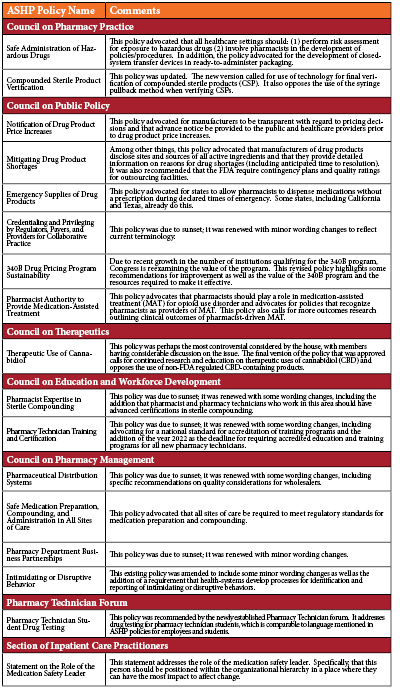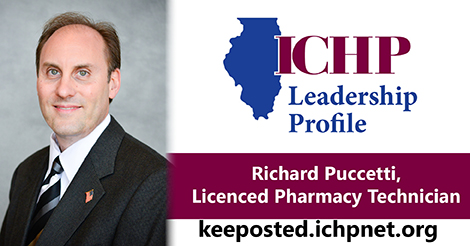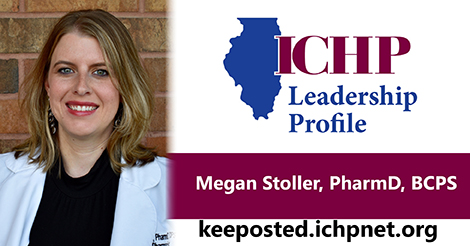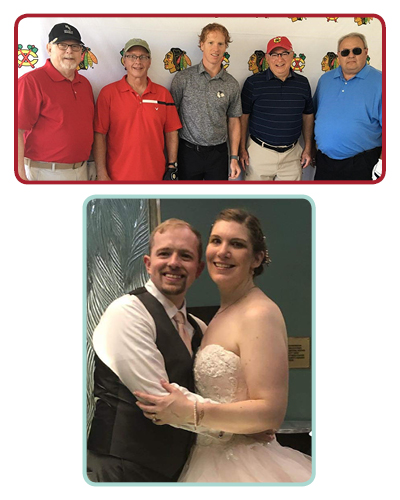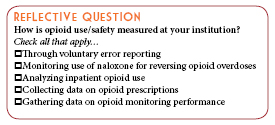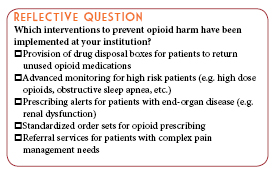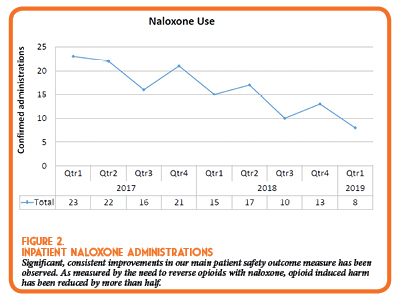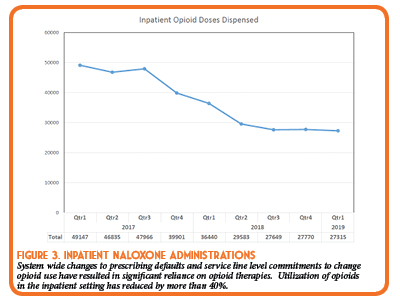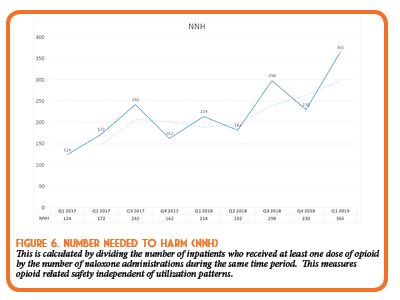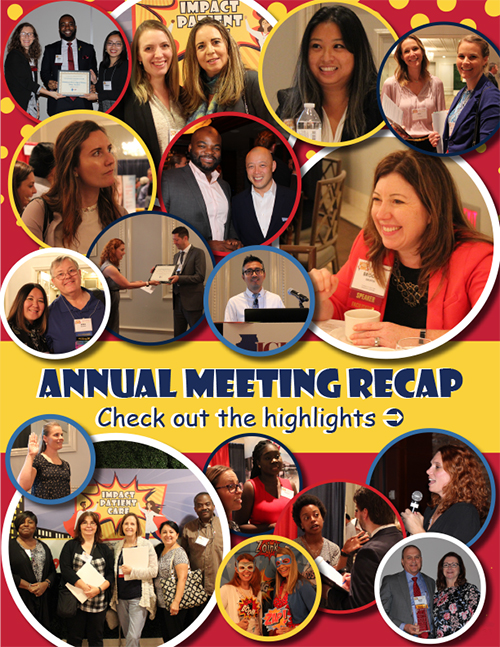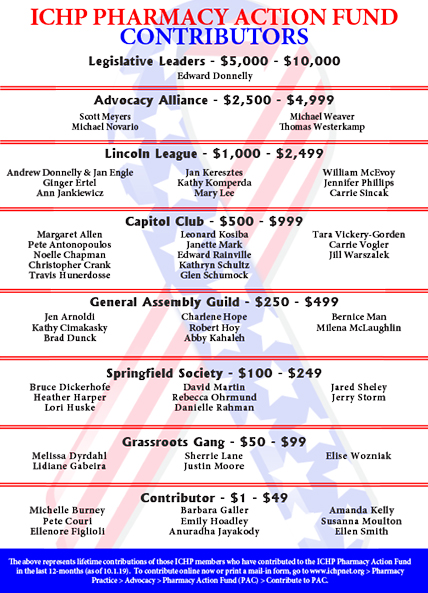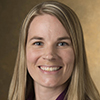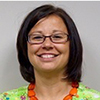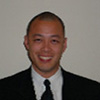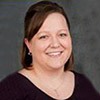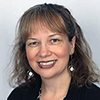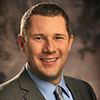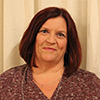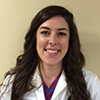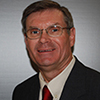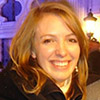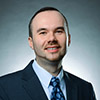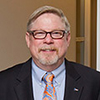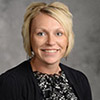Print Entire Issue
KeePosted Info
Directly Speaking
President's Message
Columns
Board of Pharmacy Update
Government Affairs
Educational Affairs
Educational Affairs
Professional Affairs
New Practicioners Network
Hi Tech
ICHP Leadership Spotlight Interview
ICHP Leadership Spotlight Interview
ICHPeople
Features
Election Results
Attention ASHP Pharmacist Members
Best Practice Journal Article
Annual Meeting Recap
ICHP Job Posting
College Connection
Midwestern University Chicago College of Pharmacy
Roosevelt University College of Pharmacy
Rosalind Franklin University College of Pharmacy
University of Illinois at Chicago College of Pharmacy
Southern Illinois University Edwardsville School of Pharmacy
More
Upcoming Events
Welcome New Members!
ICHP Pharmacy Action Fund
Board of Directors, Student Society Presidents & Affiliates
KeePosted Info
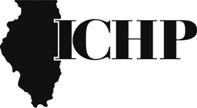
Illinois Council of Health-System Pharmacists
4055 North Perryville Road
Loves Park, IL 61111-8653
Phone: (815) 227-9292
Fax: (815) 227-9294
ichpnet.org
KeePosted
Official News journal of the Illinois Council of Health-System Pharmacists
EDITOR
Jennifer Phillips
ASSISTANT EDITOR
Milena McLaughlin
MANAGING EDITOR
Scott Meyers
ASSISTANT MANAGING EDITOR
Trish Wegner
DESIGN EDITOR
Melissa Dyrdahl
ICHP Staff
EXECUTIVE VICE PRESIDENT
Scott Meyers
VICE PRESIDENT - PROFESSIONAL SERVICES
Trish Wegner
DIRECTOR OF OPERATIONS
Maggie Allen
INFORMATION SPECIALIST
Heidi Sunday
CUSTOMER SERVICE AND
PHARMACY TECH TOPICS™ SPECIALIST
Jo Ann Haley
ACCOUNTANT
Jan Mark
COMMUNICATIONS MANAGER
Melissa Dyrdahl
LEGISLATIVE CONSULTANTS
Liz Brown Reeves
Mitch Schaben
ICHP's Mission Statement
Advancing Excellence in
Pharmacy
ICHP's Vision Statement
ICHP dedicates itself to
achieving a vision of pharmacy practice where:
·
Pharmacists are
universally recognized as health care professionals and essential providers of
health care services.
·
Pharmacists use their
medication expertise and leadership skills to optimize the medication use
process and patient outcomes.
·
Pharmacy technicians are
trained and PTCB certified to manage the medication distribution process.
ICHP's Goal Statements
·
Raising awareness of the
critical role pharmacists fulfill in optimizing medication therapy and ensuring
medication safety in team-based, patient-centered care.
·
Providing high quality
educational services through innovative continuing pharmacy education and
training programs, and sharing evidence-based best practices.
·
Developing and nurturing
leaders through mentorship, skill development programs, and leadership
opportunities.
·
Working with national
and state legislators and policymakers to create or revise legislation and
regulation critical to pharmacy practice and quality patient care.
·
Urging pharmacy
technician employers to require successful completion of an accredited pharmacy
technician training program and PTCB certification of all pharmacy technicians.
Approved by the ICHP
Board of Directors May 30, 2018.
KeePosted Vision
As an integral publication of the Illinois Council of Health-System
Pharmacists, the KeePosted newsjournal will reflect its
mission and goals. In conjunction with those goals, KeePosted will
provide timely information that meets the changing professional and personal
needs of Illinois pharmacists and technicians, and maintain high publication
standards.
KeePosted is an official publication of, and is copyrighted by, the
Illinois Council of Health-System Pharmacists (ICHP). KeePosted is
published 10 times a year. ICHP members received KeePosted as
a member benefit. All articles published herein represent the opinions of the
authors and do not reflect the policy of the ICHP or the authors’ institutions
unless specified. Advertising inquiries can be directed to ICHP office at the
address listed above. Image disclaimer: The image used in the Pharmacy Tech
Topics™ advertisement is the property of © 2017 Thinkstock, a division of Getty
Images. Some images are property of © 2019 Adobe Stock.
Copyright © 2019, Illinois Council of Health-System Pharmacists. All rights
reserved.
 Directly Speaking
Directly Speaking
Things I Learned at the Annual Meeting
by Scott A. Meyers, Executive Vice President
Another ICHP Annual Meeting has come and gone and the highlights are contained in this issue of the KeePosted. And, rather than rehash them again, I thought I would share some of the behind-the-scenes happenings that I observed, enjoyed, and continually make me shake my head!
First thing out of the box actually occurred before the Annual Meeting began on Wednesday night. Our new lobbyists spend their off-session time running or helping with campaigns for many of the legislators around the State and on the Wednesday night before the meeting they put together a fundraiser for Senators Andy Manar (Bunkerhill) and Kimberly Lightford (Westchester). We found three ICHP members from Senator Manar’s district who were headed to the meeting from Decatur Memorial Hospital: Pharmacy Director Kristi Stice, Pharmacy Operations Manager Michelle Heidel, and Pharmacy Technician Emily Boyer. I asked them if they would like to attend the event and they agreed. On Thursday morning, I met an energized and enthusiastic Kristi, who relayed the previous evening’s events and I could tell she was hooked on becoming a political activist for pharmacy. I didn’t realize how hooked until the following week when Kristi e-mailed me to volunteer to serve on ICHP’s Government Affairs Division and asked how she could follow-up with Senator Manar back home! Saying yes to a simple invitation has hopefully awakened another voice for pharmacy!
Fast forward to the last day of the meeting (pardon me for jumping around but I’m sharing nuggets based on personal impact), when I had a conversation with James Lodolce, widower of Dr. Amy Lodolce and presenter of the Amy Lodolce Mentorship Award. James has now presented the award since its inception in 2013, and he was sharing with me that during that time he has had pharmacy student annual meeting attendees approach him after the presentations to ask if he remembers them from his microbiology and cellular biology classes at Loyola University, where he teaches. James was impressed that they would do that but was even more hopeful that someday, perhaps one of his former students would be the recipient of the award named for his wife! That would be another amazing example of the circle of life!
During much of the meeting, I spend time at the registration desk, meeting and greeting attendees, listening to practice issues, and helping when I can - usually on the regulatory side. I enjoy the opportunity to talk to members, as most of you know, and it provides a great chance to catch up with friends and colleagues from around the State. Unfortunately, I don’t get to catch up with everyone and to be honest, I’m now pretty sure I don’t know everyone who attends our meetings. So what also is important to me is to get your feedback on the meeting through your completion of the General Meeting Evaluation that we provide in every attendee’s folder and online with the mobile app. This year, as with every year, we get many of the same comments, suggestions and complaints. I relearned this year that many of our attendees are helpful and complimentary with their input but a few still don’t understand all the intricacies of our Annual Meeting. This year I thought it might be worthwhile to uncover some Annual Meeting Myths!
Annual Meeting Myth 1:
“The 1.5 hour breaks were too long!” (Referring to the exhibit program) For those individuals who would rather have CE instead of exhibits, we can do that, but be prepared for the price of the meeting to jump up significantly. Did you know that ICHP gathers more revenue from our industry partners for exhibits than we receive from our attendees for their registrations?! If we do away with exhibits and replace those two 1.5 hour exhibit sessions with continuing education, we will lose more than 30% of our income and would have to raise registration fees by more than that!
Annual Meeting Myth 2:
“You keep raising the price of the meeting!” This appeared more than once on the evaluation form and this in fact, is fake news! ICHP’s Annual Meeting has been priced at $250 for a pharmacist member full registration since 2013. Except in 2016 & 2018 when we lowered the price to $200 because we partnered with the Pharmacy Learning Network and they paid for the entire Thursday programing and food each of those years! Aren’t you glad we shared the savings!?
Annual Meeting Myth 3:
“The networking lunch was great but you need to assign people to tables to make sure they mingle more!” No, what our attendees should do is decide, in advance, when there are multiple attendees from the same institution participating in the lunch, that greater success can be attained by dividing and conquering. Many years ago, I learned from a great team leader, that pre-planning who attends each session allows each team member to bring back the nuggets of gold to share with the entire team in order to produce a much larger wealth of information to improve patient care! Thanks Dr. Mike Youssi!
Annual Meeting Myth 4:
“The mobile app didn’t work!” What do you do when new software or hardware doesn’t work in your department? You call technical support! Well, there’s a wealth of technical support just hanging around the registration desk. If you need help with the mobile app, finding a meeting room, checking to see if a friend or colleague is coming to the meeting, we always look forward to helping you find an answer or solution! We look forward to solving your problems if we can or finding someone who can, if we can’t!
Annual Meeting Myth 5:
“It is too cold in the meeting rooms” seems to appear on every meeting evaluation and this year, we agree, it was too cold several times! And here’s how you can help. Next time you’re in a meeting that seems extremely cold, please find an ICHP staff member and let us know. Every morning at Drury Lane and most venues, the meeting rooms are not cooled down enough, so staff come in and crank up the air conditioning. In the meantime, they get to work and stay very busy, so they don’t notice that the temperature has fallen too far. Let us know and we will let them know. If we’re out at the registration desk, we don’t know what’s going on in each of the meeting rooms. But we can if you help us.
I learned these and a few other valuable nuggets at this year’s Annual Meeting and I hope by reading this column, you have, too. And ask your colleagues if they’ve read this column, too. Especially if you hear someone sharing one of the myths above. The more they know…
There are a variety of ways you can get more involved with ICHP and the Annual Meeting is a great place to start. Meeting new friends at the networking tables, learning about new products and services in the exhibit hall, and gathering new knowledge about treatment options, management skills or the latest in technology trends. It’s a great beginning to hopefully a career-long relationship.
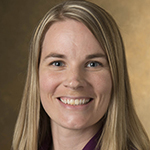 President's Message
President's Message
ICHP Presidential Address at the ICHP Annual Meeting
by Carrie Vogler, PharmD, BCPS, Clinical Associate Professor - SIUE School of Pharmacy
I am thrilled and honored to serve as your ICHP president. I enjoyed celebrating all of the great accomplishments of our members at the ICHP awards ceremony at the annual meeting. I wish we, as a profession, could do this more often – more parties to celebrate the true joy in the fact that we are making a difference in patient care.
A little about me. I participate in patient care through my work at SIUE School of Pharmacy, where I care for patients on my internal medicine service at Memorial Medical Center in Springfield, IL. My students and I participate in interprofessional rounds daily with the SIU School of Medicine hospitalist teaching service.
Now, let’s focus on you. What is your favorite team? Who watches football? Who is a Bears fan? Who is a Green Bay Packers Fan? Let’s move to baseball. Who is a Cubs, White Sox, or Cardinal fan? When I first met my husband he forgot my name AND my phone number and we almost did not have a second date. But there was one question he asked me that he thought was more important to him than my name or phone number. He asked, “So ah, what baseball team do you cheer for?” I said, “Oh I’m a White Sox fan” and the sigh of relief he gave when he heard this was audible. See, he is from St. Louis and is a die hard Cardinals fan. If the words “I’m a Cubs fan” came out of my mouth he told me he would not be able to date me.
How did you choose your team? Was it your parents’ influence? Was it your friends’ influence? Was it based on where you live? Do you like to cheer for the underdogs? Or do you pick a team that wins- like a team that has 11 World series wins and a team that is going to win the National League Central this year? (My husband said to write that.) Whichever team you choose, you want to feel included and you want to feel like you are part of something. You attach to your group because they add value to you.
How can ICHP become your team that you root for and get behind? I have been spending a lot of time thinking about you, the ICHP member, and what ICHP can do to help you be the best person you can be and how we can grow and expand our profession. I’ve been thinking about the uncertainty and job satisfaction with our profession and whether your professional needs are being met. I know each of you impact patient care, be it directly or indirectly. It’s why we were all called to this profession- to provide the best patient care we need a team working together towards the common goal of improving the health and quality of life of every patient.
Let me tell you about my favorite team: my ultimate frisbee team at the University of Illinois (U of I) in Champaign. The game has seven players on each team with the goal of throwing the frisbee to your teammates to catch it in the end zone for a score. A big component of ultimate frisbee is the “spirit of the game.” The game relies on the spirit of sportsmanship and places the responsibility for fair play on the player.
There is something special about teams - they grow together, care, build trust, and share. I’m following the path we want our profession to go and I recognize that the more voices we have, the stronger our message will be. I want to share with you some important steps on how to build and grow our team.
Step 1: Grow the team you want, and you will grow together.
It all starts with an invitation - an invitation to join and become a part of something. How did I start playing ultimate Frisbee? I was invited to tryout by a new friend at U of I. I was hesitant. “Didn’t the team have enough players?” “I’ve never thrown a frisbee, why would they want me?” “I’m going to make a fool of myself.” These are the things I told myself. Now, you fail in 100% of the things you don’t try. So I decided to work hard and gradually, I started feeling more confident. If it wasn’t for that first invitation, and my willingness to try something new, I wouldn’t have had any of the great experiences or enduring friendships that I’ve enjoyed. Many of you are here today because someone invited you to come to an ICHP meeting or asked you to join. Can you imagine what could happen if each of you invited one person to come to the next ICHP event? In the same way that I would go on to guide newer players to learn the game and develop their skills, each of us could welcome incoming members to the ICHP and help them find their way.
Step 2: We need to cultivate caring. Do the values of the team match your own values?
My ultimate frisbee team was successful because we all wanted to win. Our slogan was “think it, play it, want it, win it.” We practiced, worked together, and communicated while we worked towards our common goal. We put the work in because it was important to us. Patient care may not always be as fun as ultimate frisbee. Sometimes it can be challenging to care because the orders pile up, the meetings drag on, and you lose sight of your original goal. You can easily become burned out and lose your sense of purpose. I won’t pretend that overcoming these types of challenges is an easy task. However, my frisbee team didn’t give up when practices were long or if we lost a big match; we had to take the opportunity to regroup, refocus, and rededicate ourselves to our goal. Sometimes it is necessary to do this with patient care and with our teams.
Step 3: Build trust in your team
Your team is your family. It may not always be functional. There can be drama. Imagine my ultimate frisbee team of 15 girls driving to North Carolina together, splitting 2 hotel rooms for a tournament to save money! Not one of my best decisions, because yes, girls smell after playing ultimate frisbee and yes, there was drama. Things may not always go smoothly, but I hope each of us can build a network of people we can rely on to help us plan for the next step, solve the next problem, and celebrate the next victory.
We all need mentors to help us navigate our path in this profession. We need to learn and share the playbook to determine the best strategies and best practices. There will be setbacks, but these can bring us closer together, renew our purpose, help us see the big picture, and take the steps necessary to get where we want to be.
Step 4: Expand the team.
Finally, we need to work on expanding our team to include players whose goals and values align with our own. If our primary purpose is to improve patient care by providing safe and effective medication use, then wouldn’t it make sense to invite our physician and nurse colleagues to the table? It would also make sense for the legislature to know what a health system pharmacist is capable of and have a solid voice from the profession of pharmacy providing input to legislation that could impact our profession. I think we can do a better job telling our story of what a health system pharmacist does. We do not want our legislators to be the ones who pick up the frisbee without our input and throw it in a direction we do not want to go.
Now, let me set the stage for my biggest match ever during regionals U of I vs. Northwestern to qualify for Nationals (top 16 teams in country). We were ranked number 2, Northwestern was ranked number 1. My determination to be the best player I could be had never been stronger. People get superstitious when it is the big game- It was a hot day and I can still remember that I was wearing a long sleeve t-shirt under my jersey. I couldn’t take off that shirt because I thought it would break the spell. I wanted that win SOOO badly and I never dove for more passes or ran harder than I did on that day- all so that I could celebrate with my team. In one of the closest matches ever, U of I won. My nickname became “magnet hands” because I caught everything. We went to Nationals and the euphoria from that win continues to carry me to be the best teammate that I can be. It’s not just playing the game, it is also the spirit of the game. Finding ways to enjoy what you do while you're doing it. Playing fairly, being bold, serving a purpose.
So the theme for my presidential year is “Our Team”. Each individual is a key component to the team. We need to make sure our values align with our behavior and are serving a purpose. Let’s develop our team into a network of people who help nurture every member to grow as a person. Our team includes you, and I want to personally invite you to be an active part of our team. ICHP offers some great ways to be a part of something special and shape this profession to make it the way we want to practice.
What do I want from you?
I want you to get involved with our team by joining a committee, volunteering, becoming a Champion, submitting a poster to present at the Spring meeting, or attending ICHP events.
What can ICHP do for you?
ICHP can keep you up-to-date on knowledge you need to know at your practice site, the latest legislation that impacts you, and how to help us represent pharmacy. ICHP also offers opportunities to network with others like you and help you connect to the profession.
Keep the end goal in mind- caring for your patients, enjoying what you are doing each day, changing pharmacy for the better, building for the future. I just need you to show up- remember our name, our phone number, and remember the answer to the most important question- what team do you cheer for? OUR ICHP TEAM! ■
Columns
Board of Pharmacy Update
Highlights of the September 2019 Meeting
by Scott A. Meyers, Executive Vice President
The September 10th Meeting of the Board of Pharmacy was held at the Michael A. Bilandic Building at 160 N LaSalle in downtown Chicago. These are the highlights of that meeting.
Welcome – Cecilia Abundis, Acting Director of the Division of Professional Affairs welcomed the Board and the audience and thanked all for their efforts to make Illinois’ medication use safer. The Director sat in on most of the meeting.
NABP Update – The Board was asked for volunteers to review Illinois items on the Multistate Pharmacy Jurisprudence Examination (MPJE). In addition, the Board discussed a resolution that will be introduced at the 2019 District IV meeting in Indianapolis in October, which will ask NABP to exclude the addition of flavorings in their definitions of non-sterile compounding. Currently USP Chapter 795 considers adding flavorings to otherwise commercially available products as non-sterile compounding and this creates significant hardships for community pharmacies preparing pediatric liquid medications. The Board will discuss. If the resolution is adopted it will be presented at the 2020 Annual Meeting that will be held in May in Baltimore, MD.
NAPLEX/MPJE Remediation – Nikoli Markoski, PGY2 resident at Northwestern Memorial Hospital provided a quick update on obtaining materials from RxPrep for the Board to review. The Board is pro-actively attempting to identify approved programs for remediation for pharmacy graduates who fail the NAPLEX and/or MPJE three times, as required by Illinois law. The materials have not yet been delivered because of an on-going review for revision in 2020.
Task Force Update – Board Chair and Task Force member Al Carter reported that the Task Force has completed its work and a report is due to be distributed to the Governor and the General Assembly in the very near future. More details on the Task Force deliberations in August appear in the Government Affairs Report in this issue.
Legislative Update – The update was provided by Garth Reynolds of IPhA and highlighted several bills that passed both chambers of the General Assembly this Spring Session and have been signed by the Governor.
Next Meeting – The next meeting of the Board is set for November 12th at 10:30 am in Chicago. Check the
IDFPR Website for exact location. Meetings of the Board of Pharmacy are open to the public and pharmacists, pharmacy technicians and pharmacy students are encouraged to attend.
Government Affairs
The Final Report of the Collaborative Pharmaceutical Task Force
by Scott A. Meyers, Executive Vice President
The work of the Collaborative Pharmaceutical Task Force is done! The task force members completed their tasks on August 13th at its final meeting and now the work of the General Assembly and the entire pharmacy profession begins! The task force discussed and voted on the 16 charges it was given and added perhaps the most important one of all during its twenty months of deliberations. The work ahead for pharmacy will be to convince the General Assembly to accept all of the task force recommendations, sixteen in all, and possibly ask them to add a few more changes along the way. However, first and foremost, the 16 recommendations will be the highest priority of ICHP members, staff and legislative consultants.
Before I provide you with a summary of the 16 recommendations, let me share with you the current situation we face regarding the Illinois Pharmacy Practice Act. As of today, the Illinois Pharmacy Practice Act sunsets (no longer exists) after December 31, 2019 unless the General Assembly extends the sunset date by statute during the fall veto session (Oct. 28-30 and Nov. 12-14) and the Governor signs the extension before December 31st. The bill that created the Task Force considered that the General Assembly might be able to act on the recommendations during the veto session. However, the likelihood of that is very, very slim. With only six days and the necessary hearing required, the session would have to be void of any other substantive issues and we know that will not be the case. So, the hope of ICHP leadership is that the General Assembly will extend the Practice Act sunset date one-year, which will force all interested parties to sit down and diligently work on the Act during the 2020 Spring session. We will be reaching out to every ICHP member to urge both their State Senator and Representative to support the one-year extension. Stay tuned for next steps after the first of the year.
Summary of the 16 recommendations: (recommendations are paraphrased for brevity)
Recommendation 1: Whistleblower Protection
Anyone reporting violations to IDFPR are specifically protected under the Illinois Whistleblower Act (740 ILCS 174/15(b)).
Recommendation 2: Requirement to Employ At Least One Pharmacy Technician
The Task Force did not recommend a requirement for there to be at least one pharmacy technician on duty whenever the practice of pharmacy is conducted.
Recommendation 3: 10 Prescription per Hour Limit
The Task Force did not recommend a ten prescription per hour limit or 10 hours of technician coverage per 100 prescriptions filled by a pharmacy.
Recommendation 4: Prohibition of Distractions
The Task Force recommended the addition to the Act, or the Rules, a new section titled “Grounds for Discipline” that includes failure to provide a working environment that protects the health, safety and welfare of the patient and includes a mandate of sufficient personnel to prevent fatigue, distraction or other conditions that interfere with the pharmacist’s ability to practice safely.
Recommendation 5: No Work During Break
The Task Force recommended additional language to the “Grounds for Discipline” that includes: failure to provide a working environment that includes appropriate opportunities for uninterrupted rest periods and meal breaks.
Recommendation 6: Triple Pay for No Breaks
The Task Force did not recommend a requirement for triple pay for the entire shift should the meal or rest breaks be denied.
Recommendation 7: Required Break Room
The Task Force did not recommend the requirement that all pharmacies provide a separate break room for rest periods and meal breaks.
Recommendation 8: Required Break Records
The Task Force recommended that all pharmacies be required to retain records of all rest periods and meal breaks.
Recommendation 9: Required 8-Hour Work Day
The Task Force did not recommend setting a maximum shift length of 8 hours per day for pharmacists.
The Task Force did recommend a maximum shift length of 12 hours per day for pharmacists, with the allowance for emergent or other situations.
Recommendation 10: Mandatory Breaks and Lunch Period
The Task Force recommended that pharmacists working longer than 6 hours be allowed a 30-minute meal break and one 15-minute rest period and any pharmacist working twelve continuous hours be allow one additional 15-minute rest period.
Recommendation 11: Maintaining Error Reports
The Task Force recommended that all pharmacies be required to establish a continuous quality improvement (CQI) program to address medication errors and reporting.
Recommendation 12: Report of Prescription Discontinuation
The Task Force recommended that effective January 1, 2021, all pharmacies that use the SCRIPT standard for e-prescribing must be able to receive prescription cancellations and provide acknowledgement to the prescriber.
Recommendation 13: Patient Verification for Auto-Refills
The Task Force recommended that all pharmacies must obtain approval of the patient to participate in auto-refill programs for every prescription that is eligible.
Recommendation 14: Duties of Pharmacy Technicians
The Task Force recommended that:
- Pharmacy technicians must complete standardized accredited training and education to maintain their registration,
- Pharmacy technicians may undertake any task delegated to them if properly trained, including administration of vaccinations, but will not be allowed to perform patient counseling, drug regimen review and clinical conflict resolution,
- Pharmacy technicians and student pharmacists be allowed to transfer prescriptions between pharmacies and receive controlled substance prescriptions from prescribers agents.
Recommendation 15: Employee Terminations
The Task Force did not recommend any new language regarding the reporting of pharmacists or pharmacy technicians to IDFPR if their employment was terminated for patient safety reasons.
Recommendation 16: System for Compensating Pharmacies
The Task Force recommended that the General Assembly appoint a new Task Force to specifically review and revise the current model for pharmacy and pharmacist remuneration.
A complete description of each recommendation, the voting totals for each recommendation, and the rationale in favor or opposed to each recommendation can be found in the complete report to the General Assembly on the ICHP website on its Advocacy page.
As you can see, the task force was thorough in its review of the 16 charges placed before it by the General Assembly and you will also see that while a significant majority supported the recommendations of the task force, there was some dissension and we anticipate that it will continue in Springfield as the General Assembly duly considers each important issue. It appears that the 2020 Spring Session will be a very important one for the future of pharmacy so we hope that each ICHP member will make a concerted effort to remain informed and act when each call for support is sent. While these recommendations do not address every concern we may have with the Pharmacy Practice Act, each of these are important in their own sense. Please be ready to act on behalf of the profession.
Educational Affairs
The Non-Traditional Narrative
by Rachel Brunner, PharmD - PGY1 Pharmacy Practice Resident (2nd Year Non-Traditional) Northwestern Memorial Hospital, Chicago, IL; Jessica Carlson, PharmD, PGY1 Pharmacy Practice Resident (1st Year Non-Traditional) Northwestern Memorial Hospital, Chicago, IL
With the Midyear Clinical Meeting quickly approaching, it is the time of year where many students and pharmacists are inspired to reflect on their professional aspirations and career goals. Residency programs are becoming more sought after to prepare pharmacists to serve on interdisciplinary medical teams and to optimize medication regimens and improve outcomes across health systems.1 Residency programs throughout the nation offer exceptional training opportunities to advance the pharmacist’s role and the profession. With so many opportunities after pharmacy school, it can be a daunting process to explore PGY1 programs, especially with little to no practice experience under your belt. What if there were opportunities for you to explore your interests within residency without the pressure of deciding what the next step is within six months of starting your PGY1 program? Whether you are a practicing pharmacist wanting to expand your career opportunities or a new graduate, like us, a non-traditional residency is an excellent option for you to consider!
Classically, a non-traditional residency was designed for practicing pharmacists to take on advanced training opportunities as a resident within their own institutions. These programs offer more time to complete residency requirements, while also maintaining a staffing presence.2 At Northwestern Memorial Hospital (NMH), the non-traditional position expects the same requirements as the traditional PGY1, except that it is over 24 months instead of 12. Twelve of those months comprise the clinical rotations and the remaining twelve months are spent staffing third-shift in central pharmacy on a 7-nights-on, 7-nights-off schedule. The schedule is roughly 3 months of staffing, followed by 3 months of rotations, continued throughout the 2 years.3
The non-traditional pathway appealed to us because we both saw so many benefits and opportunities for growth that we may not have had time to glean from a traditional residency. Firstly, the 24-month program allows more time to explore our interests. Not knowing if we wanted to pursue PGY2 residencies, the non-traditional program gives more time to find our passions within the profession and to determine if a PGY2 is a right next step. Secondly, the increased staffing requirements allow us to gain confidence as practitioners, both operationally and clinically. Staffing overnights increases our operational experience, gives us a better understanding of policies and procedures, and allows us to master the overall pharmacy workflow. Being one of only 4 pharmacists staffing overnight (2 in central pharmacy, 1 in the ED, and 1 in the oncology/women’s hospital), we challenge our critical thinking skills and problem solving abilities while serving on the front line for clinical questions and medication recommendations. We also respond to cardiac arrests and intubations, which has dramatically increased our confidence in emergent situations. We had the opportunity to complete an additional quality improvement project, impacting NMH practice, and are able to dedicate an extra year to our research projects. Additionally, the 7-nights-on-7-nights-off overnight staffing model allows for travel opportunities on our off weeks, more family time, and free weekdays to catch up on home responsibilities, like laundry!
One of the most challenging obstacles that graduates face is the financial aspect of residency. It can be incredibly daunting to enter the workforce with student loans on a resident’s salary. A benefit that drew us to the non-traditional residency program was the hybrid salary that comes along with the hybrid staffing-residency position. It can offset the cost of living in Chicago, while allowing more financial independence to put money towards savings and paying off student debt. If you are a practicing pharmacist returning to residency, it is a less substantial salary decrease, making it a smoother transition financially.
Residency is a personal and professional growing experience. The important thing to consider when pursuing residency is that it is your experience, no one else’s. Don’t worry about the “timeline” when it comes to residency. No matter which program type you commit to, you are still gaining valuable experience as a pharmacist with your whole career ahead of you. Whether your reason is more time to find your passion within the profession, to grow in confidence as a clinician, or to maintain balance in your family life, a nontraditional residency may be the right choice for your career. During your residency search, keep an open mind and find a program that supports you, your wellbeing, and your ambitions. This way, you will surely succeed and grow in the next year, or two, or three of your residency.
Frequently Asked Questions:
Is the non-traditional residency accredited?
Yes! It holds the same ASHP accreditation and expectations as the traditional PGY1 program.
Can you do a PGY2 after the non-traditional program?
Absolutely! One of our past non-traditional residents is currently completing his PGY2 in a Oncology here at NMH.
Do you have to have work experience (i.e., have been a practicing pharmacist) prior to applying to the non-traditional program?
No! At NMH, prior experience as a practicing pharmacist is not required. Three of our 4 current non-traditional residents began their residency right after pharmacy school. Many of our past non-traditional residents did have prior pharmacy practice experience. There may be some programs that prefer or require prior pharmacist experience, but that will be a program-by-program
requirement.
Do you still interact with and learn alongside the residents in the traditional PGY1 cohort?
Absolutely! As PGY1 residents, we still work and learn alongside our co-residents. When we are on our staffing blocks, we are able to make time to see our co-residents socially. When on rotations,
we see them every day in our office! We think we’re incredibly lucky to get the chance to get to know not one, but TWO PGY1 classes!
Do you know of any other non-traditional residency programs in Illinois?
Yes! The programs we are aware of are:
- NMH non-traditional PGY13
- Rush non-traditional PGY14
- University of Chicago non-traditional PGY15
There may be other programs throughout Illinois, so it is always good to ask around and check the ASHP Residency Directory closer to Midyear!6
References:
- Bush PW. Role of residency training in the development of practice models. Am J Health-Syst Pharm. 2019;66(18):1623. September 2009, Page 1623, https://doi.org/10.2146/ajhp090396.
- Strawder AF. Accreditation of nontraditional pharmacy residency programs. Am J Health-Syst Pharm. 2014;71(4):276-277. https://doi.org/10.2146/ajhp130679.
- https://www.nm.org/for-medical-professionals/i-am-a-resident-or-fellow/pharmacy-residency-programs/pgy1-residency-program
- https://www.rush.edu/sites/default/files/NTRPGYI-residency-program-showcase-handout.pdf
- https://www.uchicagopharmacyresidency.org/copy-of-pgy1-detail
- https://accred.ashp.org/aps/pages/directory/residencyprogramsearch.aspx
Educational Affairs
Call for Posters!
Are you working on a project that others could learn from?
Please consider sharing the outcomes with your colleagues at the poster session during the ICHP Spring Meeting March 27-28, 2020 in East Peoria, IL! This is a great opportunity to share innovative ideas with others and learn about trends in Illinois health-system pharmacies.
Categories/Presentations/Eligibility:All ICHP members are eligible to submit abstracts to be considered for presentation at the Spring Meeting. For more information on categories for submission, platform presentations and eligibility criteria, please visit our
website.
Submission:
Members wishing to submit a poster should use the online submission form. Be sure to click "Submit" after completing your form. The deadline for submissions is January 10, 2020. Please direct any questions to Trish Wegner at TrishW@ichpnet.org.
Deadlines:
Submission deadline is January 10, 2020. Authors will be notified of acceptance of their poster via email in February, 2020.
Criteria determined by the Division of Educational Affairs
Professional Affairs
2019 ASHP House of Delegates Update
by Jen Phillips, PharmD, BCPS, FCCP, FASHP, Editor, KeePosted; IL Delegate to the ASHP HOD
In June 2019, ASHP House of Delegates met in Boston, MA to debate 18 policies and one resolution. All policies were approved, with 14 being amended or edited by the house. This year’s Illinois delegates were: Andy Donnelly, Bernice Man, Brian McCarthy, Jen Phillips, and Carrie Sincak.
Resolution: Minimum Educational Standards
The house voted on a resolution to oppose the requirement that the PharmD be the minimum degree needed in order to practice pharmacy. This resolution was in response to a qualification standard issued in September 2017 by the U.S. Office of Personnel Management that listed the PharmD as the minimum requirement. Many pharmacists still have a bachelor’s degree and it was felt that minimum qualifications should be consistent with state board of pharmacy requirements.
Joint Council Policy: Suicide Awareness and Prevention
This policy was created in response to an increase in the incidence of suicides in the United States in recent years. This policy outlines the role of the pharmacist in identifying and preventing suicide in at-risk patients and healthcare workers. The policy also advocates for the use of standardized tools and pharmacist education/training in the area of suicide awareness and prevention.
Additional policies proposed by the councils are included in the table below.
We look forward to the deliberations of the next House of Delegates Meeting, scheduled for June 6-10 in Seattle, WA! Hope to see you at the Summer Meeting!
New Practicioners Network
Dear New Practitioner, Commit!
by Bryan C. McCarthy Jr., PharmD, MS, MJ, BCPS - Director, Adult Inpatient Pharmacy Services, University of Chicago Medicine, Chicago, IL
commit1 (verb)
com·mit | \ kə-ˈmit \
Definition of commit
1: to carry into action deliberately: PERPETRATE
The new practitioner must be willing to dedicate time, energy, and themselves to become a truly fantastic pharmacist. Believe in your heart that your professional success depends on your ability to sharpen every single clinical and leadership pharmacist skill set available. Therapeutics, pharmacoeconomics, emotional intelligence, advocacy…Go all in!
There are several other professions that are potentially more lucrative or can offer more significant personal gain including (but not limited to): medicine, engineering, or real estate. It is easy to daydream “what if” when the road gets tough during pharmacy school or residency or other early steps of a career path. If you have committed to pharmacy, which hopefully you have, then time spent beholding other opportunities is time wasted.
It is increasingly challenging to distinguish oneself in this increasingly saturated pharmacist market. Ask yourself, “What makes you different or unique?” Do you have an “I-have-to-get-it-done-now” urgency with studying, group projects, networking opportunities, continuing education, or organizational leadership? Privilege and responsibility comes with being the pharmacist member of the patient-centered care team. What makes you more deserving of this privilege and responsibility than any other new practitioner?
ICHP is a volunteer-based organization that welcomes and thrives with new practitioner commitment. Beyond the ICHP New Practitioner E-board, there are several outstanding divisions and committees offering new practitioners opportunity to learn and contribute. Take a look at the website and contact the Division/Committee chair if you want to know how to get involved. And what’s more, ICHP has countless phenomenal mentors that are eager to share time, energy, and themselves with you. Take advantage now, with urgency. Your professional success depends on it.
Hi Tech
Say Hello to our Newest Network: The ICHP Pharmacy Technician Network
Recently the Division of Marketing Affairs proposed a new network that would focus on and support the professional development of pharmacy technicians. With some minor changes, the proposal was accepted and approved to move forward. Here are the details of the newest ICHP network, The ICHP Pharmacy Technician Network:
Proposal
Description
The Pharmacy Technician Network (PTN) is a group of ICHP pharmacy technician members who support the professional development and educational advancement of pharmacy technicians. The PTN seeks to recognize pharmacy technicians as the paraprofessionals they are by showcasing technician contributions to the profession while promoting involvement within ICHP.
Mission and Vision
The mission of the PTN is to enhance patient care and improve health outcomes of patients in Illinois by advancing pharmacy technician practice collaboratively with pharmacists. The PTN hopes to advance the practice for pharmacy technicians by highlighting the various roles pharmacy technicians play on the healthcare team in addition to contributing to the advancement of workforce of well-trained pharmacy technicians who seek opportunities to excel and work at the top of their training and education.
Responsibilities
- Provides communications on activities and benefits to ICHP’s pharmacy technician members.
- Seeks to increase pharmacy technician involvement and visibility within ICHP, its local affiliates, and ASHP.
- Recruits pharmacy technicians to participate in the ICHP divisions, committees, as well as the Spring and Annual meetings.
- Establishes practice, social and community service activities for ICHP’s pharmacy technician members.
- Creates statewide networking opportunities for ICHP’s pharmacy technician members.
- Establishes a platform for support and mentorship to pharmacy technicians.
- Identifies opportunities for enhanced professional development to assist pharmacy technicians with career development.
Leadership
Chair – Technician Representative Description
Description
- The Technician Representative already serves as a voting member of the ICHP Board of Directors
- Coordinates activities of the PTN, its subcommittees, and all technician members.
- Reports activities and prepares an annual report of the PTN to the Board of Directors.
- Brings to the attention of the Board “Votes to recommend” from the PTN executive board.
- Accepts assignments from the Board of Directors on a specific matter of consideration.
- Obtains approval of the Board of Directors prior to representing themselves as acting on behalf of the Council or securing funds from sources outside the Council.
- Obtains approval of the Board of Directors prior to spending funds of the Council on Technician related activities.
- Prepares an annual budget for the PTN and submits it to the Treasurer and Executive Vice President.
- Complies with Chapter 11.0 of the ICHP Policy and Procedure Manual “Performance Requirements for Board Members, Officers, and other ICHP Representatives”.
- Provide immediate assignments and mentors for pharmacy technician volunteers.
- Conducts an annual roster review of the core network and provides names of members to add or delete from the roster for the coming year.
Term
Technician representative is an elected position who serves a two-year term. May serve two successive terms.
Chair-Elect – Technician Representative-Elect
Description
- Performs the duties of the Chair in the event of the Chair’s absence.
- Assumes the role of the Chair at the end of their term.
- Assists with Pharmacy Technician related activities.
Term
Technician representative-elect is an elected position who serves one-year term.
Format/Activities
- Meets via conference call once monthly or as needed.
- Possible activities:
a. Assessment of pharmacy technician educational and member needs in the state
b. Creates resources for pharmacy technician (e.g. toolkits, how to prepare for the certification test)
c. Performs gap analysis of pharmacy technician best practices in Illinois
d. Foster collaborative research with pharmacy technicians at various practice sites
e. Creates pharmacy technician programming for Spring and Annual meetings, Champion webinars, and other opportunities
f. Participate in ICHP social media outreach
If you are interested in joining the Pharmacy Tech Network executive committee to help develop priorities and programs, please contact the office (
MaggieA@ichpnet.org). Meetings will start in 2020!
ICHP Leadership Spotlight Interview
Richard Puccetti
Leadership Position in ICHP:
Pharmacy Technician Representative for the Northern Illinois Society of Health-System Pharmacists. I provide Pharmacy Technicians with an outlet of information on how they can become more involved in their profession.
Practice Site:
President and CEO of UNITED Pharmacy Staffing located in Mount Prospect, Illinois
Why Pharmacy is for Me:
As a young man I never expected that an office job at a staffing agency would turn into a long-term career in the Pharmacy industry. But it was this start, over 30 years ago, that was the catalyst for me deciding to fulfill my dream of opening my own business.
I have now owned and operated UNITED Pharmacy Staffing for 16 years and throughout these years I’ve taken great pride in employing thousands of Pharmacists, Pharmacy Students and Technicians. Being an integral part of staffing solutions for numerous pharmacy enterprises has had a positive impact on me personally. It is very humbling to know that when I place a Pharmacist, Student or Technician on an assignment, I am helping to ensure a best outcome for what pharmacy is truly about, patient care.
Identifying caregivers who use their skills and expertise, to show compassion and commitment to providing the best care possible, because, when all is said and done, patient care is what it is all about. I have dedicated my life to dig for a deeper understanding of the everchanging needs of our industry. Each day I apply myself to do better and provide exemplary service to my employees and clients alike.
Challenges I face at my Site:
Balancing all daily responsibilities of being an independent business owner can be a challenge for sure! Whether it’s HR related, payroll-related or employee engagement related, I am committed to succeeding.
One challenge faced at work would be that I support a variety of healthcare facilities that have their own unique culture and way of doing things. To address this, I use my relational skills and strategic thinking to ensure I have identified the right person who will best fit the client’s needs.
Some employees may prefer working in a small, more intimate type of pharmacy setting while others prefer large corporate environments. It’s our job to discern which environment might be best for each employee.
It may come as no surprise that maintaining and retaining a qualified candidate pool that is willing to go from one place to another can be quite challenging. Employees may frequently change assignments depending on the needs of our clients. Agency work consists of long-and short-term contractual assignments usually lasting from 3-12 months in duration. Despite the constant change, I have found that for many employees, working agency contracts lends to the right work/life balance because of the flexibility it offers. It works best for people that have the ability to adapt to changing work environments as well as inserting themselves into the workflow while getting acclimated to new associates and peers.
ICHP is Great Because
The Association has afforded opportunities for professional growth, education, advocacy, access to information and most importantly networking with an elite group of pharmacy professionals who offer a wealth of knowledge and experience. I’ve met hundreds of pharmacy professionals and have become friends with many. We’ve supported each other throughout the years, and it’s been a pleasure being a member.
First Time Joining ICHP:
I’ve been an active member of ICHP for over 20 years. Initially, I decided to become a member to promote my staffing agency and exhibit at the annual meetings. Throughout the years, my relationship has grown with ICHP. Today, I share my expertise with the hope of supporting continuous growth while providing service to many affiliate chapters.
Special Thanks for Making Me who I am in my Career Today:
Hands down, my first boss Sheila Liberman, Registered Pharmacist. 30 years ago, she allowed me an opportunity to grow as an individual and a business professional. I worked with her for over a decade, she provided extensive training opportunities and put me through the ringer. Through her leadership and training, I learned discipline, commitment, perseverance and the ability to work through any situation and not give up. Today, I have a successful business and the roots of what she taught are still with me today.
Advice for a Student:
Begin networking immediately. At minimum, become a member of your State Association and an Affiliate chapter. Show up to the meetings, participate and take on a leadership role. Immerse yourself and begin networking with the leaders of these organizations. These leaders will present you with opportunities that will propel your career as a future Pharmacist. Don’t make the mistake of sitting back and thinking opportunities will come to you. You want to position yourself so that opportunities are coming at you rather than waiting around hoping something comes along.
My Special Interests and Hobbies Outside of Work:
I enjoy running, it’s a form of meditation for me. I will begin my run with something that’s been on my mind for a while, by the time I’ve completed, it seems that I’ve come to some sort of solution. It’s my time for discovery and problem solving.
Favorite Place to Vacation:
Each year, before my wife and I had children we would go to Galena, IL. We love the hills and beauty the area has to offer. We continued this tradition once we had children, and now, we visit Galena each Thanksgiving and stay the entire week. We relax, watch holiday movies, go shopping and enjoy a Thanksgiving Feast. It’s a great time for everyone to reconnect. We hope to continue the tradition and one day have the kids bring their families along.
ICHP Leadership Spotlight Interview
Megan Stoller
Leadership Position in ICHP:
2019 ICHP Sangamiss President Elect; 2020 ICHP Sangamiss Chapter President
Practice Site:
I am a Clinical Pharmacist at Memorial Medical Center in Springfield, IL. I float between nursing units as a Medication Therapy Management pharmacist. I work on Post-operative surgical, Oncology, General Medicine, and Intermediate Care floors. I also staff the Central Pharmacy and the OR Pharmacy. Every day is different, but variety is the spice of life! I have been in this role for 5 years at Memorial Medical Center, and similar roles for the 2 previous years, for a total of 7 years of experience in the pharmacy world as a Staff-Clinical Pharmacist.
Why Pharmacy is for me:
I attended the St. Louis College of Pharmacy immediately out of high school. Early on my mother, an elementary school principal, suggested pharmacy to me as a future profession. One of the elementary teachers at the school had a daughter, Suzanne Bartlett, who was a pharmacist. The teacher mentioned that pharmacy had been good to her daughter, and that if I was talented in math and science, I should look into it as a career. I evaluated the suggestion logically, as I typically do. I liked that I could work in a small town, or a bigger city. I liked that I could support myself on my own, or start a family. I liked that there were several different avenues that I could take with the degree. And I liked that I would be helping people “feel better” in the medical field, along with understanding how and why they do. And with my degree, I have lived in the small town of Pittsfield, IL, and I have moved to Denver, CO all while supporting myself independently. After Colorado, I moved back to Illinois, but this time Springfield. I met and married my husband and we have recently started our family, all while I have done my best to improve patient care through hospital pharmacy over the past 7 years.
Pharmacy issues that keep me from sleeping at night:
How will the world of pharmacy evolve to stay relevant with the ever improving available technology? What measures are we going to take today to secure a role in the medical field 10 years from now? How is the pharmacist of today going to stay on the cutting edge of education with the rapid improvements in artificial intelligence? Patients know more, medical doctors can ask complicated questions to applications and computer systems- what will keep the role of the pharmacist one of importance and necessity? I think safety, foresight, and critical clinical evaluation of patient issues are going to be at the forefront of securing our profession in future years.
I think the proactive preservation of health will also be a role in which pharmacists can become a large part. Pharmacists are positioned at the front line- we have a prime position to help manage disease states and prevent a number of comorbidities. I hope the future embraces the knowledge and capability of the pharmacist and their access to patients and patient care.
ICHP is a Wonderful Resource Because:
It provides a professional networking opportunity, along with current educational lectures. It is an excellent way for pharmacists in areas around the state to embrace learning and socializing.
I joined ICHP when I moved back to Illinois. The hospital system I was hired by has a big presence with ICHP, and it was an easy choice to make. It was an opportunity to stay current in my knowledge, network with other pharmacists, and grow as a life-long learner.
Special Thanks to:
My husband, Lucas, for making me who I am today in my career. Lucas is also a pharmacist; he works in the Intensive Care Unit at Memorial Medical Center. I admire his intelligence, but also his love for pharmacy and his natural drive to learn more. He has encouraged me to seek more educational opportunities, both for my own knowledge and to teach others through presentations and committees. Because of him, I have further developed myself as the life-long learner that I wanted to be when I graduated. I am thankful to have such a solid support source in my life.
Advice for a Student:
Cultivate the skill of being a life-long learner- it comes more naturally to some than others, but it is what will keep our profession relevant in the future. Also, develop good problem solving skills- it is a big piece of what makes an effective pharmacist.
My Special Interests or Hobbies Outside of Work:
On Tuesday evenings, I play bocce ball at Obed and Isaac’s Brewery; on Monday evenings in the summer I play on the Memorial Medical Center Pharmacy slow pitch softball team; and my latest adventure is my 5 month old daughter, Mia! My husband and I welcomed her, our first child, in March. We have enjoyed learning and loving her every day since she came into our lives.
You May Not Know This About Me:
I can drive a stick shift vehicle. Between the ages of 16 and 22 or so, I was a terrible driver! I had (I think) 4 speeding tickets and two other moving violations the second one being an accident which totaled my car. My dad was so upset that (when he started speaking to me again) he insisted the next car I was allowed to drive be a stick shift- that way I would have to pay more attention! In the end, I was pretty good at driving the silver Ford Focus stick shift, and was able to teach others! It was an obstacle turned into a fond memory.
3 Adjectives People Use to Describe Me:
Helpful, Personable, Planner.
ICHPeople
Golf day! (Pictured Top)
ICHP Building Company Board Members, Scott Meyers, Ed Donnely, Mike Novario and Mike Weaver got a chance to meet former Chicago Blackhawk Defenseman (now consultant to the Blackhawks) Brian Campbell (pictured center) at the Parks Chamber golf outing in August. ICHP Building company was a sponsor for the event and supplied cold bottles of water and Poweraid to the event.
Prescription for love... with unlimited Refills! (Pictured Bottom)
Congratulations to ICHP member and assistant editor of KeePosted, Dr. Milena McLaughlin. Milena tied the knot with her husband, Bill Murray, on Saturday, September 21, 2019. Congratulations Milena and Bill! We wish you years of wedded bliss!
Features
Election Results
Feature Article
Election Results
President Elect - Jen Arnoldi
Secretary Elect - Bryan McCarthy
Director Elect, Educational Affairs - David Martin
Director Elect, Marketing Affairs - Denise Kolanczyk
Chair Elect, New Practitioners Network - Marianne Pop
Technician Representative Elect - Becky Ohrmund
Attention ASHP Pharmacist Members
It's Time to Elect Delegates to ASHP's House
Feature Article
by Scott A. Meyers, Executive Vice President
The ASHP Summer meeting for 2020 will be held in Seattle, Washington from June 6-10 and in 2021 it will be in Long Beach, California from June 5-9! ICHP needs to elect two delegates to join Chris Crank, Andy Donnelly, and Jennifer Phillips as the Illinois delegation for 2020 and then continue on in 2021. ASHP’s House of Delegates is the policy making body within ASHP and is responsible for approving all ASHP position statements and practice guidelines.
Delegate candidates must be ASHP pharmacist members who plan on attending the ASHP Summer Meetings for both 2020 and 2021 at their own expense. In addition, they must attend one of the Chicago-based Regional Delegate Conferences each May (for which delegates and alternate delegates will be provided), and provide their own nomination via e-mail, fax, or mail to the ICHP office by November 15, 2019.
Nominees must provide nomination statements (limited to 250 words or less), which include years of membership in ASHP, current employment position, pharmacy association memberships, volunteer experiences related to pharmacy associations, and any other relevant information the potential candidate would like to include. The ICHP Committee on Nominations will select up to six candidates for this year’s ballot. The two candidates receiving the highest vote totals will be credentialed as delegates for 2020 and 2021 and the remaining candidates will serve as alternate delegates for 2020 only.
This is a great opportunity for someone who has served at the state level for some time and wishes to move up within ASHP. It is probably not a good match for someone with no pharmacy association volunteer experience.
Elections will be held at the end of November, with all ASHP pharmacist members eligible to vote on-line. Election results will be announced in the February KeePosted. Interested individuals should send their letter of intent and candidate’s statement to Scott Meyers by November 15th at the ICHP office via fax at (815) 227-9294 or e-mail to scottm@ichpnet.org .
Best Practice Journal Article
Reduction of Harm from Opioid Therapy Through Focused Improvements in the Opioid Medication Use Process
Feature Article
by Adam Bursua, PharmD, BCPS, Patient Safety Operational Lead, UI Health - Chicago, IL; Co-authors: Connie Larson, PharmD, Senior Associate Director, Safety and Quality, UI Health - Chicago, IL; Jane McCullough, PharmD, PGY-1 Pharmacy PRactice Resident, UI Health - Chicago, IL
Introduction, Purpose, and Goals of the Program
Opioid analgesics are widely used for the management of pain. These medications are associated with a number of serious side effects, including respiratory depression and sedation, which could ultimately lead to death.1-3 Increased prescribing and utilization of opioids has led to an epidemic of opioid related harm in United States. Among the 70,200 drug overdose deaths in 2017, approximately 68% were attributed to opioids, including prescription opioids.1,2 The Centers for Disease Control and Prevention reports that over 130 individuals die each day from an opioid-related overdose. In 2017, more than 191 million opioids were prescribed to patients across the United States and approximately 1.4 million people misuse prescription opioids.3 In the inpatient setting, adverse effects from opioids prescribed to patients during their hospital stay have contributed to increased length of hospitalization, increased healthcare costs, and unexpected deaths.4,5 As the opioid epidemic continues to evolve, interventions throughout the medication use process must be considered in order to change the trajectory of the crisis while protecting patient access to safe opioid analgesic therapy.
In an effort to eliminate preventable patient harm, the Medication System Review Committee (MSRC) at our institution was asked to lead a medication harm reduction effort as part of a Zero Harm Initiative (ZHI) program at our health system. The Medication Safety ZHI is focused on reduction of preventable adverse events related to the use of opioid analgesics. In order to assess our safe opioid use and identify opportunities to improve the opioid medication use process, a naloxone root cause analysis trigger tool was implemented in January of 2017. Naloxone is an antidote indicated for the reversal of opioid-induced respiratory depression and sedation. Naloxone is often used in the inpatient setting if a patient experiences serious adverse effects related to opioid therapy.6,7 The Agency for Healthcare Research and Quality (AHRQ), the Institute for Safe Medication Practices (ISMP), and the Hospital Improvement Innovation Network (HIIN) recommends such a strategy of using clinical “trigger tools” to identify medication errors and adverse drug events.6-8 This process is more effective than relying upon voluntary reporting alone because it detects more cases of potential patient harm and allows for a retrospective review of these cases in more detail.
The overarching program objective is to address the opioid public health crisis and reduce harm from opioid therapy through pharmacy-led, multidisciplinary medication safety interventions. The goals of the program are to investigate harm events to inform potential improvements, identify risk trends associated with iatrogenic opioid overdose, and to implement system-level interventions to modify opioid prescribing behaviors and improve monitoring practices. Other goals of the program include:
- Development of a standardized and accurate metric for measurement of opioid-related harm
- Increasing access to opioid utilization and harm data for stakeholders charged with improving the opioid medication use process
- Maintaining a naloxone data registry to monitor trends in opioid related harm and to measure the effectiveness of interventions over time
Description of the Program
In the 4th Quarter of 2016, planning for the Medication Safety Opioid ZHI began with establishing outcome and process metrics for measuring performance and progress. Referencing AHRQ, ISMP, and IHI, the committee concluded that the main outcome metric would be to utilize the naloxone trigger tool.6-8 This metric served two purposes. First, it served as a consistent measure of iatrogenic opioid related harm. Second, it enabled performance of a standardized root cause analysis to be performed, with the goal of identifying areas for intervention and improvement. To allow for this metric to be as sensitive and specific as possible for measurement of the intended outcome, naloxone dispensing was standardized to automated dispensing cabinets. Once this dispensing process was updated, a standardized review process for each naloxone dispensation was initiated. Other metrics were also established, and they included tracking of opioid doses dispensed, utilization of opioids for mild pain indications, compliance with opioid monitoring recommendations, and measures of opioid related harm normalized to the number of patients at risk.
As described above, in January of 2017, our institution implemented a naloxone root cause analysis tool to identify patients that experienced adverse effects as a result of the administration of opioids during their admission. Each month, data from each naloxone dispensation has been collected via retrospective chart review (Figure 1). In addition, opioid utilization data is collected and analyzed. The data regarding opioid administration is stored on a Microsoft Excel database and contains information regarding the opioid administered, route, frequency, medical service, and date of administration. Exclusion criteria is applied to remove naloxone use not associated with iatrogenic opioid use.

The data has been used to identify high risk opioid use and performance deficiencies associated with iatrogenic opioid overdose. Some areas which were identified as contributing to iatrogenic opioid overdose within our institution included morphine administered to patients with renal dysfunction (defined as a creatinine clearance less than 50 mL/min), opioid use for mild pain indications, and inconsistent performance of sedation assessments prior to opioid administration. In response to these findings, system level interventions were planned and implemented.
Several modifications to prescribing behaviors were made in the medication use process including:
- An alert was implemented into the institution's computerized prescriber order entry (CPOE) system to caution prescribers against ordering morphine for patients with reduced renal function, as the active metabolite of morphine can accumulate in those with renal dysfunction and pose a serious risk of developing respiratory depression and/or sedation.
- The “mild pain” indication was removed as an available ordering option in the CPOE system to nudge prescribers to avoid opioids for less severe pain and to use non-opioid alternatives instead.
- Order sets were modified to reduce reliance on opioid therapies and encourage utilization of multimodal analgesia within the institution.
Similarly, system improvements were made to improve monitoring of patients receiving opioids after opportunities were identified. These improvements include:
- Requirement for end-tidal carbon dioxide monitoring for patients receiving PCA therapy.
- Requirement for documentation of sedation assessment was implemented via barcode medication administration (BCMA) of opioid drugs.
- A report/notification was developed and configured to be sent/reviewed by our moderate sedation committee whenever a naloxone case was temporally associated with a moderate sedation procedure.
The success of these interventions are measured through continued monitoring of opioid use and iatrogenic opioid harm through the outcome and process measures outlined above. Sharing of this data with other stakeholders has enabled them to measure progress with other opioid related initiatives throughout the health system.
Experience with and Outcomes of the Program
The program has documented significant improvements in several important process measures, as well as the main outcome measure, reduction of harm from opioid therapy. The number of naloxone administrations for opioid-induced respiratory depression/sedation has continued to significantly decrease from 29 administrations in Quarter 1 of 2017 to only 8 administrations in the latest reported quarter in 2019 (Figure 2). Using the Illinois Hospital Association’s calculator for cost savings from adverse drug events, the health system averted an estimated $385,000 of costs for adverse drug events related to opioid therapy.
In that same time period, the amount of opioids administered has also steadily and significantly decreased. Since implementing this initiative, the number of inpatient opioid administrations went from 49,147 quarter 1 of 2017 to 27,315 quarter 1 of 2019 (Figure 3).
Several process measures have also improved as a result of the implemented opioid safety strategies. Of note, there have been significant improvements in sedation monitoring by nursing staff (Figure 4) and a reduction in opioid use for mild pain indications (Figure 5).
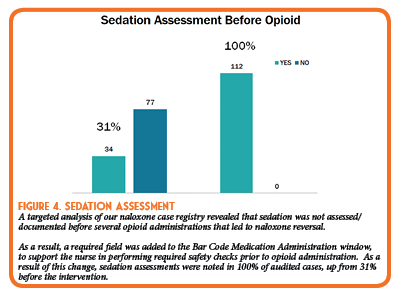
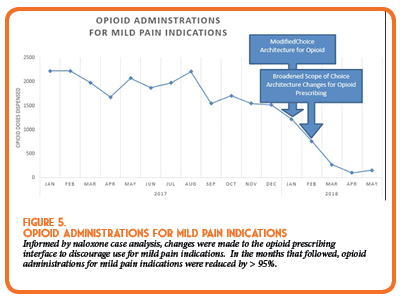
Overall, our efforts have demonstrated a reduction in both naloxone and opioid administrations within our institution. Independent of opioid utilization figures, our institution has seen a decrease in opioid related harm, as illustrated in the “Number Needed to Harm” calculation in Figure 6. In the first quarter after implementation of this program, only 124 patients receiving opioid therapy would be treated with an opioid before one patient would experience an opioid adverse event requiring naloxone administration. After the described interventions, as of Quarter 1 of 2019, the number needed to harm has increased to 365 patients who would receive opioid therapy before a naloxone administration is required. When analyzed together, these findings suggest opioid safety has improved through both conservative opioid utilization, and improved safety/monitoring when opioids are used.
Discussion of Innovative Aspects of Programs and Achievement of Goals
Since its development in 2017, the naloxone trigger tool has enabled the implementation of several innovative, system-level interventions to improve opioid prescribing behaviors and monitoring practices. While utilization of the naloxone trigger tool for both root cause analysis and safety benchmarking is in itself innovative, other innovative aspects of the program came from the improvement interventions.
Many of the interventions implemented over this time period relied on the innovative behavioral economic principle of the “Nudge”. The 2017 Nobel Prize for Economics was awarded to University of Chicago Economics Professor Richard Thaler, who described this theory of decision behavior. The theory describes methods to alter decision making behavior through modification of choice architecture, intentionally setting default options, or otherwise “nudging” individuals to make the ‘right’ decision without significantly changing incentives. The “nudge” theory was applied in several of the interventions implemented through our Zero Harm Initiative. One example is the modification of opioid prescribing for mild pain indication by modification of prescriber “choice architecture” (Figure 5). Another example was the modification of order defaults for our most commonly prescribed opioid medication, acetaminophen/hydrocodone. Each of these interventions dramatically changed opioid prescribing behavior, and each relied on the innovative theory of the “nudge”. In the case of the acetaminophen/hydrocodone “nudge”, prescribing was reduced by more than 20% for an average of approximately 20,000 fewer tablets each month after the intervention.
Conclusions
Through the combination of innovative practices for both measurement of patient related harm and process improvement science, our pharmacy-led initiative significantly improved the safety of opioid use in our health system.
References
- Scholl L, Seth P, Kariisa M, Wilson N, Baldwin G. Drug and Opioid-Involved Overdose Deaths — United States, 2013–2017. MMWR Morb Mortal Wkly Rep 2019;67:1419–1427.
- About the U.S. Opioid Epidemic. HHS. 2019. Available at: https://www.hhs.gov/opioids/about-the-epidemic/index.html.
- Centers for Disease Control and Prevention. 2018 Annual Surveillance Report of Drug-Related Risks and Outcomes — United States. Surveillance Special Report. Centers for Disease Control and Prevention, U.S. Department of Health and Human Services. Published August 31, 2018. Accessed June 5, 2019 from https://www.cdc.gov/drugoverdose/pdf/pubs/2018- cdc-drug-surveillance-report.pdf.
- Lynn LA, Curry JP. Patterns of unexpected in-hospital deaths: a root cause analysis. Patient Saf Surg. 2011;5:3.
- Oderda GM, Said Q, Evans RS, et al. Opioid-related adverse drug events in surgical hospitalizations: impact on costs and length of stay. Annals of Pharmacotherapy. 2007; 41(3): 400–407.
- Agency for Healthcare Research and Quality. Triggers and trigger tools. United States Department of Health and Human Services Patient Safety Network. https://psnet.ahrq.gov/. June 2017. Accessed June 5, 2019.
- Measuring up to medication safety. Institute for Safe Medication Practices. https://www.ismp.org/resources/measuring-medication-safety. March 10, 2005. Accessed June 5, 2019.
- Health Research & Education Trust. Adverse Drug Events Change Package: 2017 Update. 2017. Chicago. IL: Health Research and Education Trust. Accessed at www.hret-hiin.org. Accessed June 5, 2019.

Once you're logged in to CESally.com, type "2019 ICHP Best Practice on CEsally.com" and you will be able to chose the Pharmacist or the Pharmacy Technician box.
Annual Meeting Recap
Impact Patient Care
Feature Article
by Melissa Dyrdahl, BA - ICHP Communications Manager
What a meeting! More than 550 Pharmacy super-heroes beamed into Oakbrook Terrace, IL to attend the 2019 ICHP Annual meeting this past September. Over the course of three days, attendees networked, met our ICHP lobbyists, attended excellent CE presentations, and learned about the latest and greatest in pharmaceuticals and technology from our exhibitors. Saturday’s programming also featured some great programming for students – including panel discussions with some of the best and brightest in Illinois’ pharmacy circle as well as a great residency showcase. If you couldn’t attend the meeting – be sure to check out our Facebook page for photos and videos.
The theme of the 2019 meeting was IMPACT Patient Care. One of the ways we set about this goal was with the first ever ICHP Networking Lunch. During lunchtime on Thursday, volunteer moderators helped guide conversations on the following topics: academia, ambulatory care, leadership and management, medication safety, new practitioners, pharmacy practice and pharmacy technicians. It was a great way for attendees to meet other pharmacy professionals with similar interests and discuss ways to advance the profession. The networking lunch was followed by an interdisciplinary keynote presentation, Having True Impact on the Opioid Crisis: What Everyone Should Know and featured information from the perspective of a pharmacist, surgeon and an Illinois drug enforcement agent. The topic was timely and well-presented! We had quite a few members join us on Thursday evening to meet and welcome our new ICHP lobbyists, Liz Brown-Reeves and Mitch Schaben. The duo spoke briefly to our members about their experiences in government and why it is so important for every member to take an active role in pharmacy advocacy on a grassroots level!
Friday morning started bright and early with the reverse exhibit – a favorite of our exhibitor friends! This event really helps keep our registration prices down for all our attendees and we’re very thankful to the pharmacy directors who take the time to participate on our behalf. We continued the day with sessions in Ambulatory Care, Pharmacy Practice and Management, and Clinical Practice. At lunch time we broke for a special Town Hall Meeting – where our members talked about their concerns and ambitions for the upcoming year. We also swore in our new board and affiliate leaders:
President:
Carrie Vogler
Immediate Past President:
Noelle Chapman
Treasurer:
Christopher Crank
Director of Government Affairs:
Sharon Karina
Director of Organizational Affairs:
Elise Wozniak
Director of Professional Affairs:
Amy Boblitt
Chair of the New Practitioners Network:
Natalie Tucker
Northern Region Director:
Alifiya Hyderi
Central Region Director:
Julie Downen
Southern Region Director:
Jared Sheley
Sangamiss Society President:
Megan Stoller
Northern Illinois Society President:
Milena McLaughlin
*For a complete list of board members check our website
We topped Friday off with a wonderful dinner at Ditka’s – where we celebrated (now immediate past-president) Noelle Chapman’s presidential reign and the IMPACT she generated for pharmacy practice in Illinois over the last year.
The conference center was a buzz Saturday morning as we welcomed students from across the state! The Saturday morning Technician session is always popular and well attended too! Of course, one of the best moments of the day is when we get to award some of our amazing volunteers. The following awards were handed out this year:
Shining Star Award:
Sharon Karina, Milena McLaughlin, Richard Puccetti, Megan Stoller
Industry Award:
Ginger Cioffi-Carragher (Grifols)
New Practitioner Leadership Award:
Bryan McCarthy
ICHP Student Chapter Award:
University of Illinois at Chicago and Rockford, College of Pharmacy
Outstanding Volunteer Award:
David Martin
President’s Award:
Christopher Crank
Pharmacy Technician of the Year:
Rebecca Ohrmund
Amy Lodolce Mentorship Award:
Mary Ann Kliethermes
Pharmacist of the Year Award:
Jerry Storm
After the awards program our pharmacist and technician members participated in a very interactive ASHP Pharmacy Forecast workshop while students ended the meeting with an amazing Residency showcase – which featured 30 residency programs from across the Midwest!
So, there’s another successful meeting in the books! None of this would have been possible without YOU (our members and volunteers) but also our meeting sponsors. We’d like to give a special super-pharmacy shout-out to our gold and silver sponsors:
Gold:
AstraZeneca, Merck & Co., Inc., QuVa, Sunovion
Silver:
AmerisourceBergen, Bristol-Myers Squibb, IPSEN, McKesson, Mylan, T2 Biosystems, United Pharmacy Staffing, Xellia
Thank you for helping us to “IMPACT” Patient Care!
We hope we’ll see you again soon at the 2020 ICHP Spring Meeting, March 27, & 28th at the Embassy Suites Conference Center in East Peoria, IL!
ICHP Job Posting
Executive Vice President
Feature Article
Brief Position Description
The ICHP executive vice president is a highly visible leadership position, responsible for overseeing and managing all aspects of the Council’s operations. This includes assisting and implementing the Board of Directors, Division and Committee initiatives; and overseeing and guiding ICHP staff on membership, education, special events, publications, and advocacy efforts. ICHP seeks a licensed pharmacist with strong management, financial and project management experience, previous work and leadership experience within health-system pharmacy and professional membership associations, and an awareness of health-system pharmacy legislative and regulatory issues.
The Organization
ICHP is a statewide professional organization whose members include pharmacists, pharmacy technicians, pharmacy students, and other pharmacy professionals who serve as members of healthcare teams within or have an interest in Illinois' hospitals and health-systems. ICHP was formed in 1963, and incorporated as a 501 c (6) not for profit with a for-profit subsidiary, the ICHP Building Co. LLC. ICHP’s mission, “Advancing Excellence in Pharmacy”, is accomplished through a variety of products and services to assist our members and the pharmacy profession in providing safe and effective care for their patients. ICHP holds two annual membership conferences (fall and spring) with education and networking opportunities and industry participation; retains Illinois licensed lobbyists and participates in advocacy efforts including a state-wide pharmacy legislative day collaboration. ICHP is a founding member of the national Pharmacy Technician Certification Board (PTCB), and an Accreditation Council for Pharmacy Education (ACPE) accredited provider of continuing pharmacy education since 1995. The Council develops and implements various continuing education programs, including a series of educational modules for pharmacy technicians, Pharmacy Tech Topics™, published quarterly by ICHP since 1996.
For more information on ICHP and a detailed description of this position and application process, please visit:
www.ichpnet.org College Connection
Midwestern University Chicago College of Pharmacy
The Impact ICHP Has Made On Me
College Connection
by Deanne Ruth Capinpin, PS3, ICHP Secretary Midwestern University Chicago College of Pharmacy
During my first year of pharmacy school, I knew I wanted to find an organization that not only suited my interests, but also challenged me to become a better pharmacy student. I wanted to collaborate with others and possibly find leadership opportunities that could push me out of my comfort zone. Over the past two years, I have found everything I was looking for and more within ICHP.
As a general member during my first year, I was a bit shy and was still figuring out how to be a student in pharmacy school. Between work and school, I asked myself, how am I supposed to get involved? I struggled to find a balance and lacked confidence. Looking back, I regret not joining the mentorship program, going to volunteer events, or asking questions to learn more during general body meetings and speaker events. As a result, and because of my experience during my first year, one of my goals prior to becoming a PS2 was to change all of that and become more involved.
The more I grew accustomed to being a first-year pharmacy student, the more I figured out how I studied best for exams and become more comfortable asking peers for help individually and during group study sessions. My confidence slowly grew and I found ways to step out of my comfort zone. I gained more of that confidence while practicing patient counseling and learning from IPPE rotations. It gave me a taste as to how to become a leader within pharmacy. Even though I felt intimidated being put on the spot when preceptors would ask me questions, I am grateful for the opportunity to have constantly been in a learning environment and gain knowledge. After all, experiences such as these will only help me in the future for APPE rotations, and ultimately help me become a better pharmacist. Collaborating with other pharmacists and meeting other healthcare professionals has taught me how to network and the importance of teamwork. I have met some amazing pharmacists along the way who have provided me with great advice. These experiences have really opened my eyes as to what I am capable of and how I should not be afraid to be a leader. This led me to the decision to run for an ICHP E-board position.
I became very involved in ICHP after having the pleasure of being elected secretary last year. Not only did I complete the tasks the position required of me such as sending out emails, taking meeting minutes, helping set up for events, and supporting other E-board members, but I also found myself becoming a mentor, making new friends, and participating in school events such as Halloween, Winter, and Easter Fests. I was also constantly aware of ICHP events that were coming up since I had all the information to send out in our weekly emails, and I was always encouraging others to get involved or learn more about the organization through our general body meetings. I became more educated on what other opportunities may lie ahead during our speaker events. We have held events that provided information about internships, fellowships, residencies, and mission trips. This has helped me gain insight as to what other areas to consider as a student and even upon graduation. I try to have an open mind and learn as much as I can now with all the resources our organization has provided.
Being a part of ICHP has helped me find confidence within myself, become open to new opportunities, strive to achieve personal goals, and become educated by searching beyond what I already know. Having this professional community to lean on can open doors to many different opportunities, just as it has for me. I am proud of the work I was able to accomplish last year while serving as secretary. By being re-elected to serve a second term for this school year, I wish to strive to do more and improve ICHP on our campus. I hope to reach out to other students who can benefit from this organization in the same way I have. ICHP has not only supported my professional goals, but it has also helped me attain some of my personal goals.
Roosevelt University College of Pharmacy
by Kamila Dymala, ICHP student member Doctor of Pharmacy/MBA Candidate, 2021 (P2) Roosevelt University College of Pharmacy
Once upon a time, there was a person who worked as a sales assistant. That person was an ideal fit for this role, always focused on helping people, attentive, and thorough. Then he/she became a pharmacy technician. Everyone came to him/her for pharmacy advice as he/she got along with everyone and was able to solve most of the pharmacy related problems. Then he/she became a pharmacist who was fully involved in his work. Now, he/she is the manager of the pharmacy team. In each of these professions, he/she brought energy, focus, and devotion. He/she lived happily ever after…This story shows that the passion is not in a chosen profession, but in the person.
When student pharmacists formulate their sense of identity, they often discover that the most important feature that describes them is empathy. They say that they place themselves in the patient's situation. This ability is much more than compassion - it implies understanding the patient's condition and introduces a broader psychological context. Many student pharmacists emphasize their focus on the patient. Student pharmacists claim they are decent listeners and share a belief about importance of active listening skills. Practicing these key skills needs one more important condition - a very high level of internal discipline. Student pharmacists understand a trait of reliability, without which it would be impossible to practice the profession. In addition to these characteristics, student pharmacists recall receptiveness and divisibility of attention. Moreover, they say they must have a good memory - their profession requires continuous training and expanding qualifications.
In the context of what has been presented above, let's try to refer to the thought contained in the title "Who are we as Student Pharmacists?" We are empathic, future professionals, who are hard-working with active listening abilities…Great! Identification with the profession is a component of social identity. A high degree of professional identification is particularly important in professions of social trust, which undoubtedly includes the pharmacy profession. Additional questions regarding the significance of this fact reveal only that it is the professional mission. Hence, by describing themselves and their personal identity, student pharmacists understand the importance of the features that allow them to serve the patient.
Mission is the inner consciousness of a person that he/she wants to dedicate. Without this internal decision, the professional pursuit of the welfare of others, and the pursuit of any profession would be only passive. The joy that comes from practicing your own profession, with a sense of passion is unreachable to those who do not have such a sense of vocation.
Is being a future pharmacist a mission? Yes, but only if the person himself/herself treats his/her work as fulfilling a duty. It can be stated with equal certainty that a person chooses the profession that he/she will do and makes decisions about how he/she will do it by his/her own decisions and efforts. We shape our interests, our competencies, and our approach towards work. Every profession should have the same vocation: do your job, whatever it is, with full passion, commitment, and energy.
Rosalind Franklin University College of Pharmacy
Strategies to Increase Chapter Membership and Participation
College Connection
by Nimita Shah, P3, ICHP President Rosalind Franklin University College of Pharmacy
As the new academic year begins, it is important to remind students how essential it is to get involved in extracurricular activities. Being a part of an organization, such as ICHP, is paramount to a student’s academic career, as it will help them become better pharmacists in the future. The Rosalind Franklin University (RFU) College of Pharmacy (COP) has more than 10 different pharmacy-centered organizations in addition to many opportunities to join university interprofessional organizations. The average class size at RFU COP is between 50-60 students in each of the four professional years. Busy pharmacy students may have limited abilities to participate in the plethora of activities each organization runs. However, our ICHP chapter at RFU has continued to grow due to our efforts to actively engage current and prospective members. Every year, the RFU ICHP chapter adds fun, unique, and helpful activities to engage our members. All the events held are tailored to the students to ensure they gain a better understanding of the opportunities the profession of pharmacy entails, especially in health-system pharmacy.
Our chapter held our first general body meeting (GBM) of the 2019-2020 academic year during the first week of classes. This was very advantageous because we were able to generate a lot of interest from current and potential new members right from the start. Next, we held our annual membership drive where students could learn more about ICHP. The event was on campus and we were able to cater a student favorite, Chipotle. We prepared various pharmacy-related activities such as ICHP bingo and raffles (with enticing incentives) to make the event more active to encourage participation from attendees. We had an amazing turnout at the event and many students became ICHP members right on the spot!
We are currently planning upcoming events that have had great success in the past. These include clinical roundtables, residency roundtables, professional headshots, and CV workshops. We hold these events to help our members grow professionally. For the clinical roundtable, we are fortunate to have a variety of faculty members willing to participate who each have their own specialty, such as infectious disease, critical care, solid organ transplant, oncology, mental health, toxicology, and ambulatory care. The wide array of specialties attracts many members to attend and participate as they are trying to find their niche in the pharmacy world.
Future plans for the chapter include making our GBMs more interactive. We plan to integrate more pharmacy-related activities into our meetings to keep members engaged and interested throughout the year. We will continue to invite unique guests to speak to our members so that they can see all the different opportunities available after graduation. Lastly, we plan on increasing our presence on different social media platforms, such as Facebook and Instagram to keep members well informed about all our exciting and upcoming events.
University of Illinois at Chicago College of Pharmacy
Addressing the Crisis at Home
by Maxwell Stone, ICHP President-Elect Second-year Student Pharmacist University of Illinois at Chicago College of Pharmacy
According to the Winnebago County Coroner, there has been a 28% increase in drug overdoses.1 Fentanyl, a synthetic opioid analgesic, accounts for 64% of overdose deaths in the county. The opioid crisis has had a devastating impact across the Midwest; Rockford, Illinois is no exception. In fact, more than 80% of the drug overdoses in Winnebago County occur in Rockford. The University of Illinois at Chicago College of Pharmacy students are working on addressing this issue.
This past Spring, ICHP and APhA collaborated together to initiate an Opioid Awareness Event on campus. The purpose of the event was to educate students about opioids so they would be more prepared to address the crisis in community and clinical practice. Invited speaker and UIC alum, Dr. Mariana Ivanylo shared her experiences working as a clinical pharmacist in opioid utilization management as a pharmacy benefit manager for CVS/Caremark. Student pharmacists completed a presentation that focused on educating students on general opioid safety, naloxone administration, and comparative dosing of opioid medications. The event supported collaboration between student organizations, networking with alumni, and real-world application of student training. An expansion of outreach efforts was developed with the involvement of ICHP students and a new initiative, Operation Opioid.
In the Fall of 2018, several UIC second-year pharmacy students formed an outreach group to help combat the spread of the opioid crisis in their community. We believe that as future pharmacists, we are responsible to aid and educate our community when it comes to medication. Furthermore, as healthcare professionals, we should hold each other to a high standard for properly dispensing and counseling on all medications, especially opioids.
After overwhelmingly positive feedback from students and faculty, the small group project has grown, evolved, and gained elective status within the university. The program has been supported by the Vice Dean, Kevin Rynn, who has been an outspoken member of our community in addressing the opioid epidemic. Seven student pharmacists from the Class of 2022 were the first to join the newly formed elective course, now offered each spring semester. The collective was deemed Operation Opioid “Team O2” and set out to create community outreach events and raise awareness about opioid use and misuse.
The student chapter members of ICHP at the UIC College of Pharmacy have played an important role in the formation of this organization and its mission. Among the founding members of this organization are ICHP Chapter President, William Clafshenkel and APhA-ASP President, Catherine Ayala. Class of 2022 recruits for the elective also included myself, the ICHP Chapter President-Elect, and ICHP Mental Health Chair, Crystal Zupon.
Student pharmacists in the elective were split into two groups that conducted research, created educational posters and presentations, discussed the latest findings, and demonstrated the proper use of naloxone injectors. The semester’s work culminated in the groups giving four educational presentations at Belvedere High School and Jefferson High School in Rockford.
By splitting the students into two smaller groups, the presentations were smaller and more personal. The 45 minute presentations fit snugly into a class period for students, but the hope was that the impression would last a lifetime. Members of “Team O2” provide a special perspective to presentations as the opioid epidemic has had a profound impact on all of their lives. Members incorporate their experience presentations and the profession. The presentation covers what opioids are, how they are used, their addictive properties, community and nationwide statistics, how to detect an overdose, and how to use a naloxone injector.
The circumstances that made “Team O2” members unique in their experiences are unfortunately becoming more common. During each presentation many students have shared how their lives have been affected as well. This has supported our goal to provide outreach for high school students. High school students are among the most susceptible to the opioid epidemic, but early education can create some real change in these students' lives and communities. The Fall semester has only just begun, but it already feels like the spring semester is on its way. “Team O2” members are all eager to see how we can expand the program and involve the newest class in the elective.
Southern Illinois University Edwardsville School of Pharmacy
Leadershape: Looking Inward to Discover True Leadership
by Justin Shiau, P2, President-Elect SIUE School of Pharmacy
The SIUE School of Pharmacy is full of renewed energy with classes in full swing, and a brand new wave of P1 students looking forward to future experiences. On top of all the classwork, students’ schedules are full with volunteering and attending local and national conferences. The SIUE SSHP chapter started the school year off strong with a whopping attendance of 110 students at the first general meeting held in August! We presented the close connection that we have with ICHP and ASHP to new students, as well as the benefits that come with joining our large health-system family. We could not have done this without the efficient and quality planning of our executive board (e-board). To ensure that our chapter continues to succeed, we encourage our e-board members to facilitate strong bonds with each other. One annual tradition that we have is to participate in a team-building activity to strengthen our teamwork. This year, we went to downtown St. Louis where we set a record time for STL Escape The Room! It was a great experience being able to spend time with the other e-board members and get to know them better.
Here at SIUE SSHP we also like to promote effective leadership skills and are always looking for ways to develop and rejuvenate these skills. One such way is by attending the annual ICHP Student Leadership Retreat each fall. The retreat is a day-long event that ICHP hosts for every e-board student chapter in Illinois. Each year, the current president of ICHP speaks on a topic related to leadership. This year, we had the honor of listening to Dr. Noelle Chapman speak about her perspective on leadership. Conner McClain, our Vice President, eagerly took this opportunity for leadership to further advance his own personal goals as well as benefit SIUE’s SSHP chapter.
“The ICHP Student Leadership Retreat was a great opportunity to learn more about what ICHP has to offer, meet and interact with executive board members from other schools, and build upon our fundamental leadership skills. One of my favorite aspects of the retreat was when we had the chance to listen to Dr Noelle Chapman speak about what it means to be a leader. Her energy combined with her interactive teaching style and personal leadership experiences allowed me to truly comprehend what she was saying and realize the ever-evolving role of a leader. Besides challenging and pushing myself to become an improved leader, this retreat allowed the executive boards from all of the pharmacy schools to bond. We were able to ask each other questions in a judgement-free environment and learn what unique qualities each SSHP chapter brought to the table. To be surrounded by individuals with the same goals of improving and growing our local chapters as well as cultivating a culture of prospering health-systems pharmacists was something I will never forget. I would highly recommend attending this retreat to all future e-board members. This experience is a great time to strengthen the bond of your executive board, meet new people, network, grow as a leader, and more.”
– Conner McClain, P3, Vice President
Leadership in pharmacy is a continuously growing area. We are in a time where pharmacy is beginning to take its stand and form its place next to other healthcare providers. Leadership has had a long-time image of being a hierarchical structure with one individual at the top, supported by a group of individuals at the bottom. It made sense to many people since – after all – leadership would cease to exist if there were no followers. However, leadership is beginning to shape itself into an image of equality with direction. As Dr. Chapman had presented, there are over 20 types of leadership roles! Each role has a purpose and it is not just one type of leader being at the top. Leadership is “an introspective sport”. It takes a lot of internal reflection to truly find what style of leader you are. You could have one style or multiple styles in a certain situation; but at the end of the day, what matters is that effective leadership can take the shape of many different aspects.
With this newfound knowledge of leadership under our belts and the ICHP Annual meeting coming up very soon, we hope to continue our great success here at the SIUE SSHP student chapter.
More
Upcoming Events
Regularly Scheduled Conference Calls
Educational Affairs
3rd Tuesday of each month - 11:00 am
Executive Committee
1st Tuesday of each month - 8:00 am
Government Affairs
3rd Monday of each month - 5:00 pm
Marketing Affairs
3rd Tuesday of each month - 8:00 am
Organizational Affairs
2nd Wednesday of each month - 3:00 pm
Professional Affairs
4th Tuesday of each month - 3:00 pm
Technology Committee
2nd Friday of each month - 8:00 am
Regularly Scheduled Network Meetings
Ambulatory Care Network
1st Thursday each month - 12:00 pm
Chicago Area Pharmacy Directors Network Dinner Meeting
See ICHP calendar for details
www.ichpnet.org/events/calendar/
New Practitioners Network
3rd Tuesday of each month - 5:30 pm
Small and Rural Hospitals
See ICHP calendar for details
www.ichpnet.org/events/calendar/
Champion Live Webinar
November 6, 2019 at noon
Topic: Drug DiversionL Define, Recognize and Prevent
Speaker: Mary Clare Pfeiffer, CPhT
Accredited for Health-System Pharmacists & Pharmacy Technicians
2019 Leadership Retreat
November 15-16, 2019
I Hotel and Conference Center - Champaign, IL
By invitation only
NISHP CPE Event - Double Feature
November 21, 2019
RPM Italian, Chicago, IL
Presentation #1 (Non-CE)
Topic: ANDEXXA: Coagulation Factor XA (Recombinant), inactivated-zhzo
Speaker: Tom King, MD
Sponsored by Portola Pharmaceuticals
Presentation #2 (CE)
Topic: Competencies, Milestones, and Entrustable Professional Activities, Oh My! Assessing Pharmacy Practice Readiness and Beyond
Speaker: Denise Kolanczyk, PharmD, BCPS (AQ Cardiology)
Accredited for Health-System Pharmacists
2020 ICHP Spring Meeting
March 27-28, 2020
Embassy Suites Conference Center - East Peoria, IL
2020 Legislative Day
April 22, 2020
Springfield, IL
2020 ICHP Annual Meeting
October 1-3, 2020
Drury Lane Theatre & Conference Center
Oakbrook Terrace, IL
Welcome New Members!
Joined in July
Ye Aung - Recruited by Alice Moy
Daniel Beckman
Amanda Blackford
Ravyn Bolton
Shameka Brunson -
Recruited by Janice MaeweatherMelissa Harvey
Fischer Herald
Aaron Macias -
Recruited by Rebecca OhrmundLuseet Patel -
Recruited by Jeremy BalingitJames Rhodes
Swetha Sajan -
Recruited by Jeremy BalingitDrishti Shah -
Recruited by Jeremy BalingitDaniel Sikora -
Recruited by Nicholas MoffettJoAnn Smith
Kendall Spicer
Erik Stojanoff -
Recruited by Nicholas MoffettShannon Stuart -
Recruited by Anna StewartXavier Torres
Trai Zoldan -
Recruited by Rakesh JainCrystal Zupon -
Recruited by Nicholas Moffett
Joined in August
Zabruba Abolarin
Tanya Abraham -
Recruited by Andy DonnellyLauren Andrews
- Recruited by Andy DonnellySkyler Boll
Ana Cruz -
Recruited by Andy DonnellyPhuong Dang
Jeremy DeLor -
Recruited by Andy DonnellyBetty Derza
Melissa Durst -
Recruited by Andy DonnellyNisreen Elagha
Bridget Fleming
Minti Gandhi -
Recruited by Jeremy Fernandez BalingitSara Gardner
Krystian Gayles
Tanya Ghannam
Shivani Gheewala
Emmanuel Gustave
Matthew Hammer -
Recruited by Mike WeaverKent Hanson
Brittany Holshouser
Alexandria Kline
Hannah Koeller
Mariya Krisenko -
Recruited by Dana PuljanKaily Kurzweil -
Recruited by Andy DonnellyFelicia Langston
Meghan Lanzante
Rachel Larry
Esther Lee -
Recruited by Alexis TandykNadia Lelikov
Shin Lewis
Tatsiana Maksimenka
Jasmine Mangrum -
Recruited by Andy DonnellyMiranda Mansfield
Gina Manzi -
Recruited by Andy DonnellyVictoria McBain
Renz Paulo Melicor
Parker Mortensen
Dean Nguyen
Kelsey Olion
Brandon Olson
Megan Owens
Meera Patel
Ryan Ragan
Alex Rock -
Recruited by Andy DonnellyAllyx Roher
Alaine Ruggless
Ashley Sabat
Nicole Saccone -
Recruited by Andy DonnellyYelena Sahakian
Biondina Saipi
Jovita Sanderson
Anna Sandler
Melody Saunders -
Recruited by Andy DonnellyKatherine Schubert
Marvin Serdena
Keval Shah
Frank Shin
Nikola Spegar -
Recruited by Bryan McCarthyWartini Squire
Maxwell Stone
Lukasz Suchocki
Aaron Then
Julieta Vaklin
Allison Wadlow
Alice Wang
Anna White
Lexi Wintermann
Katelyn Wisinski -
Recruited by Allison WaldvogelTiffany Wu -
Recruited by Andy DonnellyYiwei Yin -
Recruited by Andy Donnelly
Joined in September
Sharifah Abdallah
Yusuf Aftab
George Alexander -
Recruited by Dhara PatelSam Almawri
Grace Amponsah
Hilary Antar
Alan Antony
Shawn Babiarz
Joshua Baldwin
Rachel Benesh
Bailey Bergschneider
Annabelle Blanchette
Joe Blatz
James Boster
Ellie Braun
Mary Brinkman -
Recruited by Jennifer EllisonSofia Bychek
Kathleen Chagnon
Warumporn Chaisompongpun -
Recruited by Jeremy Fernandez BalingitPrinkal Choksi
Myrrh Cogas
Madison Collins
Marryssa Conway
Reegan Cotey
Hannah Crum
Ibrahim Dakroub
Vanderly Dang
Angelica DiPrizio
Victoria Dizon
Ngoc Dong -
Recruited by Jeremy Fernandez BalingitAleece Duffy -
Recruited by Megan MaloneBenjamin Eigenbrodt
Ramzi Elayan
Fadi Ezzeddine
Hassan Faraj
Hannah Farley
Huma Fatima
Hope Florante -
Recruited by Jeremy Fernandez BalingitEmiley Flores
Naim Fsai
Kamlesh Goyal
Grady Graham
Alexandra Guzman
Seth Hartman -
Recruited by Kevin ColganErin Hatfield
Ashley Hawk
Emily Heflin -
Recruited by Jeremy Fernandez BalingitHannah Henderson
Kaitlin Hitt
Reem Hnaihen
Megan Hull
Taha Hussain -
Recruited by Dhara PatelJoann Huynh -
Recruited by Megan MaloneYussuf Ismail
Jayla Jack
Alexis Jakuszewski
Patryk Janowski
Bergandi Johnson
Melinda Jones
Lala Kakooni
Amy Kallo
Katie Kaminskas
Kevin Karczynski -
Recruited by Christie SchumacherHayley Kendrick
Meagen Khoshaba
Leah Korte
Rucha Kulkarni
Ahmad Leila
David Li
Shujie Lin -
Recruited by Megan MaloneHaley Longo
Doan Ly -
Recruited by Jeremy Fernandez BalingitSneha Maddi
Malgorzata Margosiak
Victoria Marshall
Nina Mashayekhi
Daria Maslowski
Zachary Matushek
Sara Mehmood
Monica Metry
Cayden Miller
Bansari Modhera
Alexander Nguyen
Britney Nguyen
Ali Olayan -
Recruited by Jeremy Fernandez BalingitRyan Olp
Merna Osman
Parth Patel
Dhara Patel
Rema Patel -
Recruited by Dhara PatelRadhika Patel -
Recruited by Jeremy Fernandez BalingitMary Pfeiffer -
Recruited by Lara EllingerHai Pham
Brenda Pitogo -
Recruited by Jeremy Fernandez BalingitAlex Pond -
Recruited by Megan MaloneAndrew Posen -
Recruited by Megan MaloneJosh Posner -
Recruited by Megan MaloneMark Pulver -
Recruited by Megan MaloneSanya Qureshi
Ahmad Rayes
Ranya Razick
Sara Rhymer
Anel Ribo
Maci Rieman
Vanessa Rivera
Moises Rodriguez
Janet Romero
Isabella Ruiz
Murrah Sabouni
Jihan Salama
Brenda Salas
Rayan Salih
Lugain Sbeih
Shalvi Shah
Reina Shimozono
Brittney Snell -
Recruited by Megan MaloneAngelo Strappelli
Tara Tanriverdi -
Recruited by Megan MaloneExequiel Tee
Sarabbir Thiara
Kylee Thole
Emily Tran - Recruited by Megan Malone
Giang Trinh
Samantha Triplett
Michelle Tulej
Ehinose Uduehi -
Recruited by Jeremy Fernandez BalingitZachary Weinstein
Brenna Wing
Eunkyo Yi
Jessica Young -
Recruited by Jeremy Fernandez BalingitAyan Younis
David Zimulinda
Sarah Ziny
Arbeleena Zouzani
ICHP Pharmacy Action Fund
Contributors
Pharmacy Action Fund Contributors
Board of Directors, Student Society Presidents & Affiliates
Board of Directors
|
Carrie Vogler
President
|
Julie Downen
Regional Director
Central
|
David Martin
Educational Affairs
Director
|
Tara Vickery Gorden
Small and Rural Hospital
Network Chair
|
|
Noelle Chapman
Immediate Past
President
|
Alifiya Hyderi
Regional Director
Northern
|
Bernice Man
Marketing Affairs
Director
|
David Tjhio
Committee on
Technology Chair
|
|
Jen Arnoldi
President-Elect
|
Jared Sheley
Regional Director
Southern
|
Sharon Karina
Government Affairs
Director
|
Jennier Phillips
Editor & Chair,
KeePosted
|
|
Christopher Crank
Treasurer
|
Kristine VanKuiken
Technician
Representative
|
Natalie Tucker
New Practitioners
Network Chair
|
Milena McLaughlin
Assistant Editor,
KeePosted
|
|
Ed Rainville
Secretary
|
Elise Wozniak
Organizational Affairs
Director
|
Dan Majerczyk
Ambulatory Care
Network Chair
|
|
|
Scott Meyers
Executive Vice
President
ICHP Office
|
Amy Boblitt
Professional Affairs
Director
|
|
|
Student Society Presidents
Sanad Abduljawad
Chicago State University College of Pharmacy
|
Kristen Ingold
Southern Illinois University Edwardsville
School of Pharmacy
|
Irum Khan
Midwestern University Chicago
College of Pharmacy
|
Josiah Baker
University of Illinois at Chicago
College of Pharmacy
|
Jeremy Fernandez Balingit
Roosevelt University College of Pharmacy
|
Bill Clafshenkel
University of Illinois at Chicago
Rockford Campus College of Pharmacy
|
Nimita Shah
Rosalind Franklin University
College of Pharmacy
|
|
Northern Illinois Society of Health-System Pharmacists (NISHP)
Milena McLaughlin
President
|
Tommy Chiampas
President-Elect
|
Denise Kolanczyk
Immediate Past President
|
Erin Shaughnessy
Treasurer
|
Andrew Merker
Secretary
|
Richard Puccetti
Technician Representative
|
West Central Society of Health System Pharmacists
Liz Harthan
President
|
Ed Rainville
Immediate Past-President
|
Metro East Society of Health-System Pharmacists (MESHP)
Sangamiss Society of Health-System Pharmacists
Megan Stoller
President
|
Ashlie Kallal
President-Elect
|
Billee Samples
Immediate Past-President
|
Vacant Roles at Affiliates
President, Rock Valley Society
President, Southern IL Society
President, Sugar Creek Society
Print Entire Issue


 Directly Speaking
Directly Speaking President's Message
President's Message